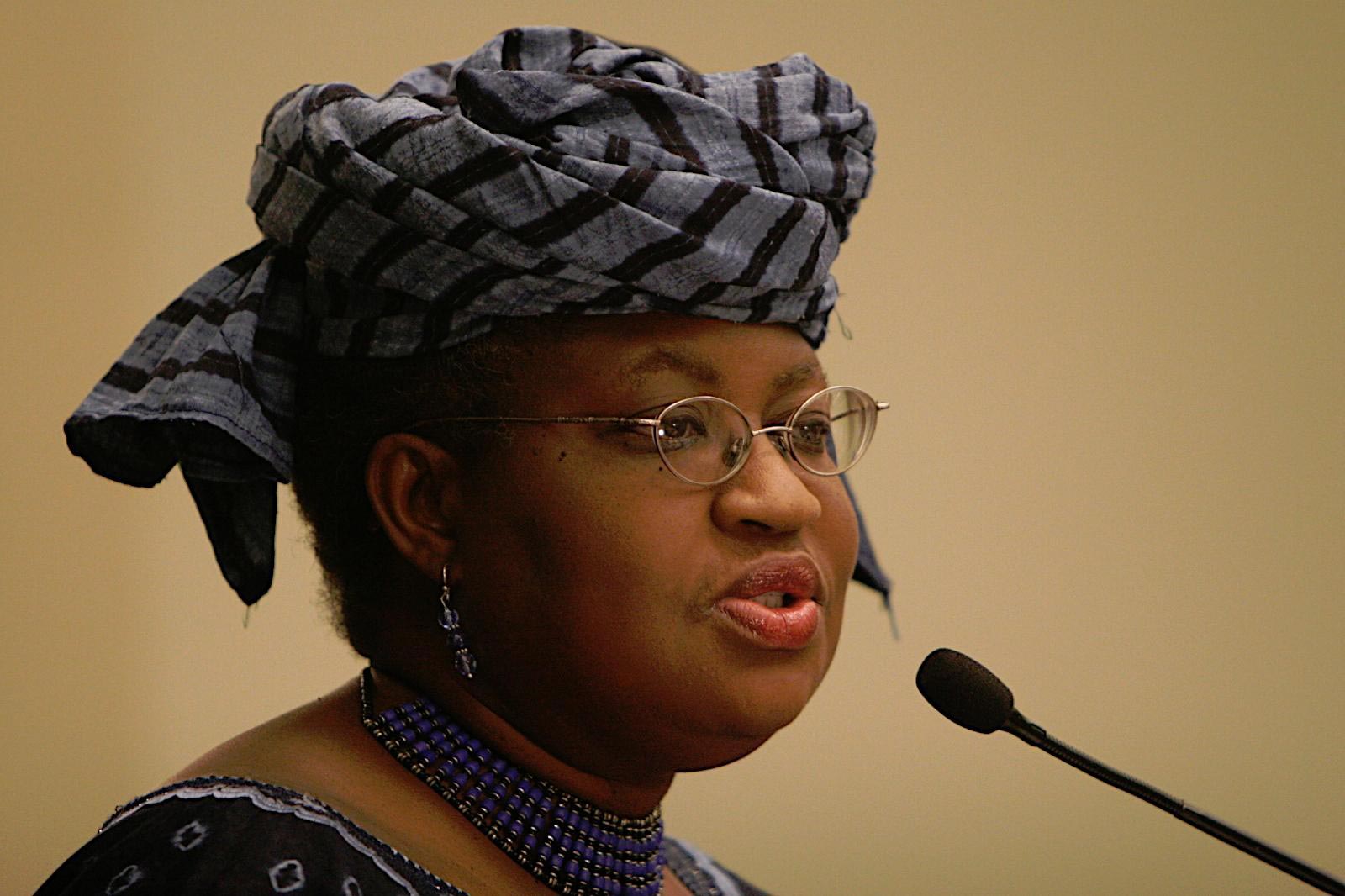The House of Representatives Committee on Finance remains on a collision course with the Coordinating Minister for the Economy (CME) and Minister of Finance, Dr. Ngozi Okonjo-iweala, as it has raised issues over her 100-page reply to the 50 questions on the state of the economy that were handed to her last December.
Chairman of the committee, Dr. Abdulmumini Jibrin, in a letter to the minister titled, “State of the Economy: Observations, Request for Additional Information and Invitation to investigative Hearing”, dated January 31, 2014, noted that the minister did not answer some questions, partially answered some, ignored some or failed to comprehend some.
According to him, there were “glaring missing gaps in the responses, absence of supporting proof to assertions and lack of relevant documents to back up the presentation as is the practice in any legislative oversight or investigation.”
Observing that a chunk of the data and statistics the CME provided did not fit the information she submitted while answering other questions, Jibrin also criticised the minister’s comparative analysis in answering some questions, noting that she “failed to apply the same in some cases that obviously require such approach”.
“In some instances, you abruptly referred the committee to relevant agencies for clarification. The committee is surprised at that because of its conviction that if all the questions raised are beyond the competence of the Minister of Finance, it is certainly not beyond the competence of the Coordinating Minister for the Economy to the extent of information you must have in your possession unless you say otherwise,” he added.
Giving a copious appraisal of the minister’s response to the 50 questions, the committee provided clarification of what was expected of her by stating, “Your responses this time and submission of the supporting document are expected to put issues in a clearer perspective to enable the committee conclude preparation for the hearing.”
For the umpteenth time, the House summoned the minister to appear before it and gave her a deadline of March 3 to do so. The committee also painstakingly catalogued the areas in which her response failed to answer questions posed to her. These comprised 39 out of all 50 questions.
However, while it did not fault 15 other questions, it pointed out that they would be subjected to additional scrutiny at the hearing.
Specifically, the committee wants the minister to give supporting documentary evidence of requisite facts and figures of government’s claims regarding its economic achievements, provide documentary evidence to support claims on the role of the manufacturing, real estate and housing sectors, answer the question on where exactly expenditure cuts were made in order to reduce recurrent expenditure for the years in question, specify why the economy is growing but not creating enough jobs and present a comparative and alternate scenario of what the possible outcomes for the country might be of a higher debt-GDP ratio assuming a diligent focus on infrastructure development financing, using the borrowed funds.
On the Global Competitiveness Report of the World Economic Forum for 2013-2014, the committee wants the minister to provide the probable economic consequences of the country’s ranking, provide the official figure of Nigerians in abject poverty, and the provisions of the repayment dates of loans collected for the execution of projects.
Other issues to which the committee sought clarifications are: the guidelines on which the borrowed funds were based upon; percentage of loanable funds that went to the agricultural sector,; the manufacturing sector and the capital market; a detailed performance report, including disbursement schedule and levels of implementation for each of the projects for which external borrowings were made; the specific economic disadvantages of a much higher external debt vis-à-vis a much lower domestic debt; corresponding human development indices (such the UNDP’s HDIs) for Nigeria in comparison with these economic growth ratings as those of Fitch, Standard and Poor’s and Moody’s; and information about her conclusions based on these comparisons.
It also demanded to have names of persons/companies who benefited from exemptions and waivers, and an answer as to whether Nigeria needs the services of a foreign company to analyse and improve its tax system.
On the Sovereign Wealth Fund (SWF), the committee also sought to know the present cumulative value of Nigeria’s pension fund, which is similar to Norway’s Government Pension Fund; required clarification on Mastercard; and the multiplicity of public funds being sunk into the establishment of different identification systems by the National Identity Management Commission (NIMC), the National Population Commission (NPC), the Independent National Electoral Commission (INEC), Nigerian Police Force, the Federal Road Safety Commission, etc.
It also asked for the minister’s assessment of the conditions of mass transit buses/ taxi cabs provided since 2012; government’s reason for the persistent poor implementation of the Subsidy Reinvestment Programme (SURE-P); provide documentary evidence on the disbursements of the FGN’s N200 billion intervention fund to the SMEs she referred to with the Central Bank of Nigeria (CBN).
On crude oil sale, the committee demanded information on how much Nigeria had made in excess of the average benchmark price for the years 2011 to 2013, and wanted specific information on the management issues surrounding the Excess Crude Account (ECA), and all the other observations and requests it raised in the letter to the minister.







